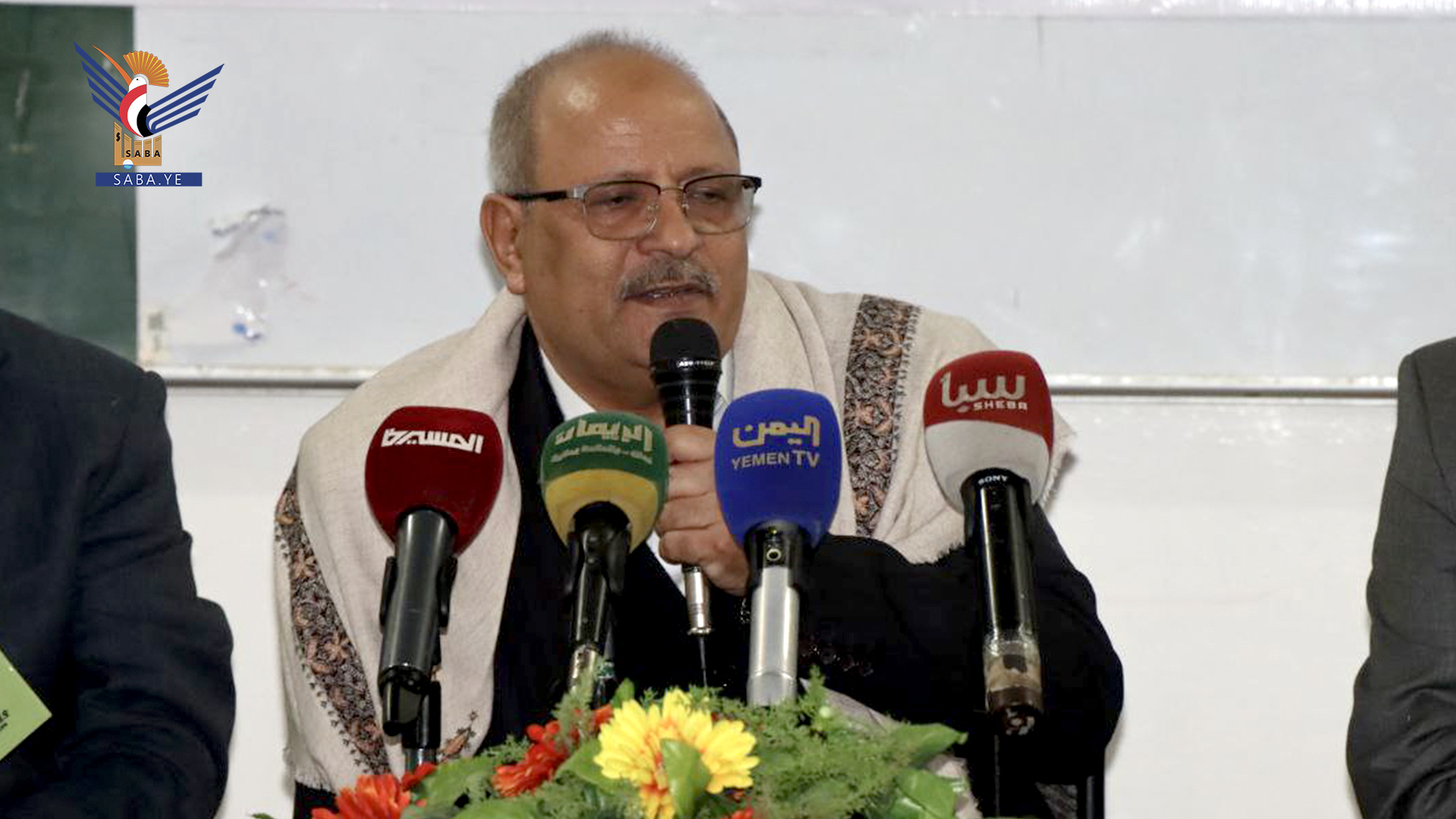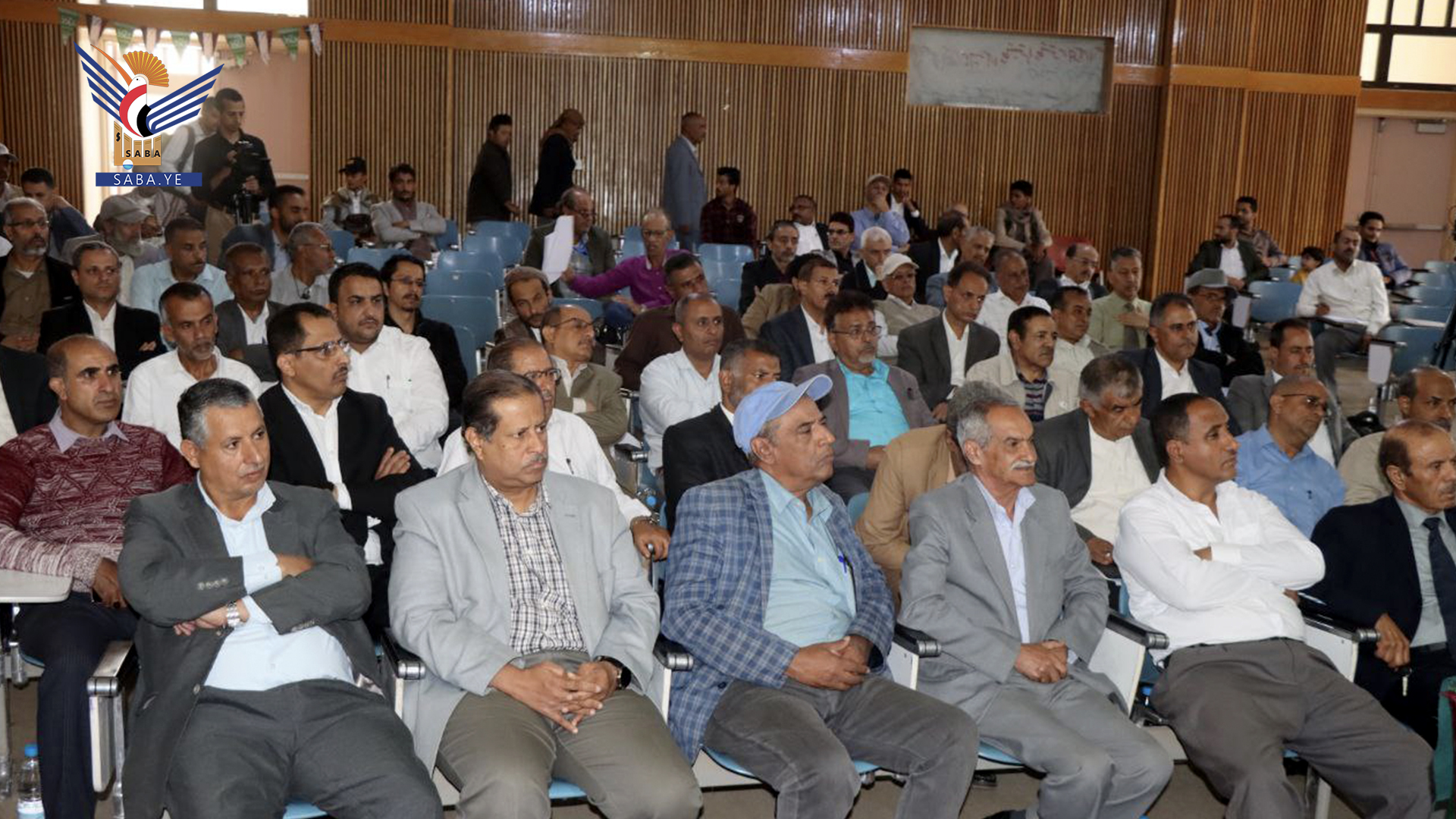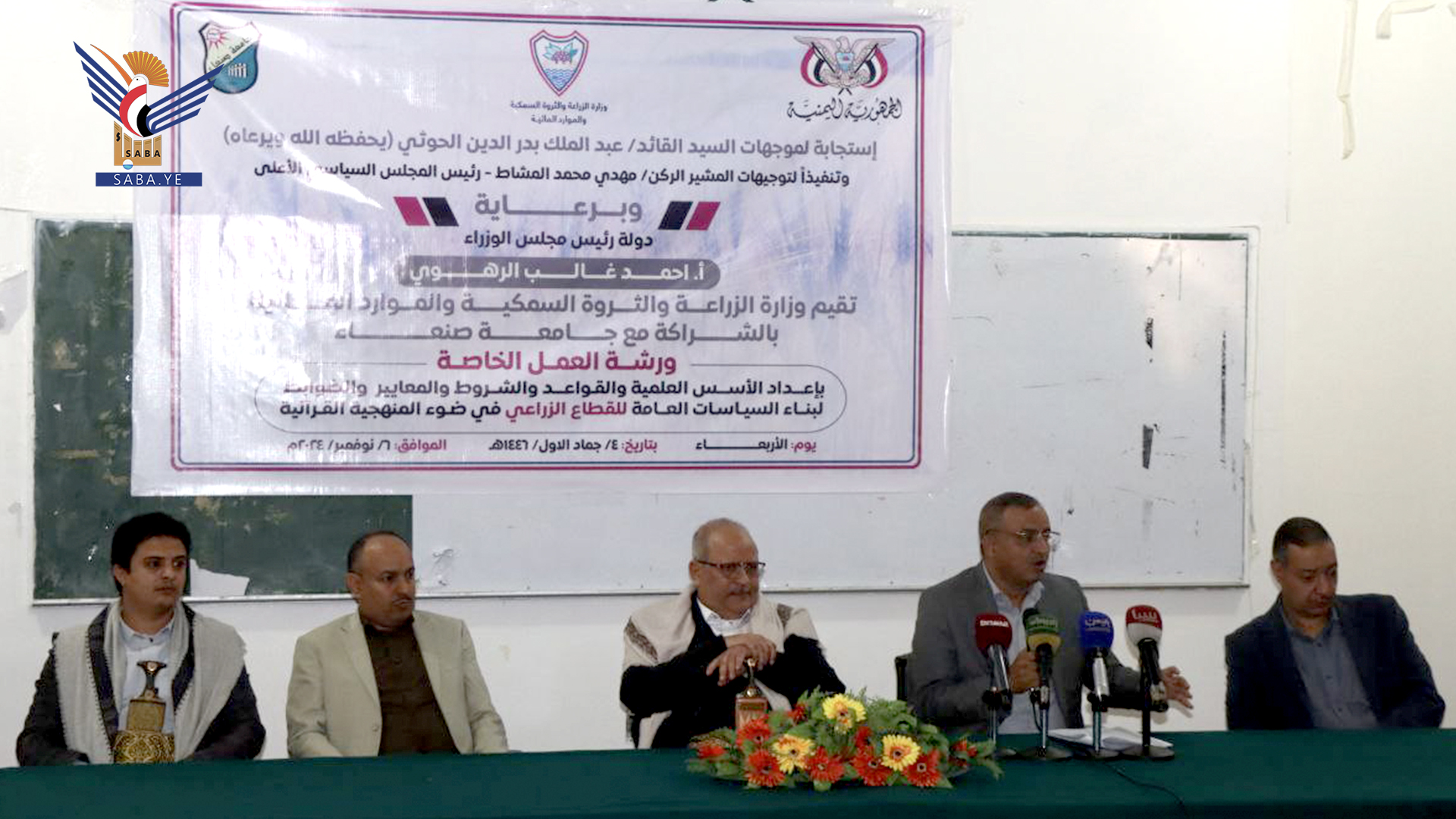
Sana'a - Saba: The Ministry of Agriculture, Fisheries and Water Resources, in partnership with Sana'a University, organized a workshop on preparing scientific foundations, rules, conditions, standards and controls for building general policies for the agricultural sector in light of the Quranic methodology.
In the workshop, member of the Supreme Political Council, Mohammed Saleh Al-Naimi, pointed out the importance of building agricultural policies according to scientific foundations, rules, conditions, standards and controls in light of the Quranic methodology, and in a way that contributes to overcoming the challenges facing the agricultural sector in Yemen, noting that reliance on external references and self- and personal controls are among the most prominent negatives facing agricultural policy, which requires working to avoid them by relying on the Quranic methodology and the directives of the revolutionary and political leadership as main references for the advancement of this vital and important sector.
Al-Naimi stressed the importance of focusing on activating the mechanism of cooperation between the Ministry of Agriculture and Fisheries and agricultural colleges and finding a mechanism to benefit from the scientific specializations in those colleges, to reduce the problems facing farmers, and in a way that contributes to serving the quality of agricultural products, and developing and improving agricultural services.
He stressed the need for there to be a reference that the ministry can rely on to preserve products and organize all paths and mechanisms according to general policies based on preparing institutional work, as these paths need to be reorganized and established in a way that keeps pace with the requirements of state building and radical change, and for the Yemeni state to be a pioneer in its institutions, regulations and laws in a way that reflects positively on strategic plans.
In the workshop, member of the Supreme Political Council, Mohammed Saleh Al-Naimi, pointed out the importance of building agricultural policies according to scientific foundations, rules, conditions, standards and controls in light of the Quranic methodology, and in a way that contributes to overcoming the challenges facing the agricultural sector in Yemen, noting that reliance on external references and self- and personal controls are among the most prominent negatives facing agricultural policy, which requires working to avoid them by relying on the Quranic methodology and the directives of the revolutionary and political leadership as main references for the advancement of this vital and important sector.
Al-Naimi stressed the importance of focusing on activating the mechanism of cooperation between the Ministry of Agriculture and Fisheries and agricultural colleges and finding a mechanism to benefit from the scientific specializations in those colleges, to reduce the problems facing farmers, and in a way that contributes to serving the quality of agricultural products, and developing and improving agricultural services.
He stressed the need for there to be a reference that the ministry can rely on to preserve products and organize all paths and mechanisms according to general policies based on preparing institutional work, as these paths need to be reorganized and established in a way that keeps pace with the requirements of state building and radical change, and for the Yemeni state to be a pioneer in its institutions, regulations and laws in a way that reflects positively on strategic plans.

